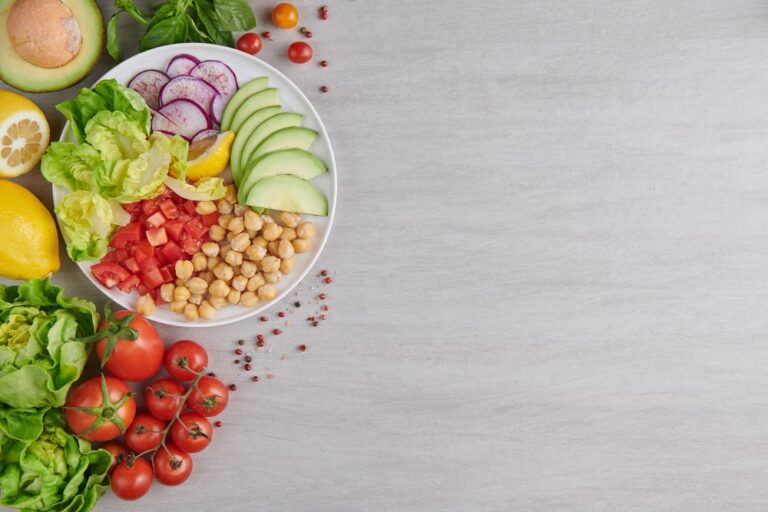Table of Contents
- Protein-Rich Foods for Muscle Strength and Cardiovascular Health
- Heart-Healthy Nuts for Longevity and Brain Health
- Fiber-Rich Fruits for Digestion and Immune Support
- Vegetables and Whole Grains for Comprehensive Nutritional Support
- Dairy Alternatives for Bone Health and Heart-Friendly Fats
- Embracing a Heart-Healthy Lifestyle for Seniors
As we age, maintaining a nutritious diet becomes even more critical. Good nutrition not only prevents chronic illnesses but also enhances energy, cognition, and overall quality of life. Unfortunately, many older adults do not prioritize healthy eating, with nearly two-thirds of seniors over 65 in the U.S. consuming poor diets, often due to convenience or lack of knowledge. At From The Heart Home Care, we believe healthy eating for seniors should be a top priority. Here’s an in-depth look at 15 essential foods that can fuel the heart, mind, and body as we age.
Protein-Rich Foods for Muscle Strength and Cardiovascular Health
1. Fish: A Powerhouse of Omega-3 Fatty Acids
Fish, particularly salmon, tuna, mackerel, and sardines, is one of the most effective foods to improve cardiovascular health. These fatty fish are rich in omega-3 fatty acids, which can help reduce inflammation, lower triglyceride levels, and decrease the risk of heart disease. For seniors, baked or grilled fish can make an easy, heart-healthy meal. For those who don’t enjoy the taste of seafood, fish oil supplements can provide an alternative source of omega-3s.
Recipe Idea: Try a simple baked salmon with fresh herbs, lemon juice, and a sprinkle of olive oil. This dish is flavorful, easy to prepare, and supports cardiovascular health.
2. Skinless Chicken and Turkey for Lean Protein
Skinless poultry like chicken and turkey is an excellent source of lean protein. Removing the skin reduces saturated fat content, which benefits those looking to manage cholesterol levels. These meats are also versatile, providing high-quality protein that aids in maintaining muscle mass—a crucial factor in reducing falls and injuries in seniors.
Recipe Idea: Prepare baked or grilled skinless chicken breast with a variety of herbs, spices, and vegetables for a well-rounded, heart-healthy meal.
3. Eggs: Packed with Protein and Vital Nutrients
Eggs are a budget-friendly, nutrient-dense food that supports heart health when consumed in moderation. Seniors can benefit from the high-quality protein and essential vitamins in eggs, which support vision, brain health, and muscle maintenance. To reduce cholesterol intake, egg whites can be used in cooking and baking.
Tip: Hard-boiled eggs are a convenient, portable snack that can be enjoyed without added fats or salt.
Heart-Healthy Nuts for Longevity and Brain Health
4. Walnuts: The Nutrious Omega-3 Champion
Walnuts, like fish, are rich in omega-3 fatty acids, making them an ideal snack for heart health. They are also a great source of fiber, which supports digestive health and helps reduce cholesterol levels. Adding a small handful of walnuts to salads, oatmeal, or yogurt is an easy way to incorporate this heart-healthy food.
Health Note: Studies have shown that regular walnut consumption may also have cognitive benefits, making it beneficial for brain health and memory.
5. Almonds: Unsaturated Fats for Cholesterol Management
Almonds provide monounsaturated fats, which can help reduce low-density lipoprotein (LDL), often called “bad” cholesterol. High in vitamin E and magnesium, almonds make for a nutritious, heart-friendly snack when enjoyed in moderation and without added salt or sugar.
Tip: Use chopped almonds as a topping for yogurt or cereal, or enjoy a handful as an afternoon snack to keep blood sugar stable.
6. Cashews: Supporting Blood Pressure and Heart Health
Cashews are another excellent option for seniors, as they are a good source of magnesium, a mineral known to support blood pressure regulation. Unsalted cashews are preferred for heart health, as excessive sodium intake can elevate blood pressure. Including cashews in meals or as a snack can help improve overall heart health and support cholesterol management.
Tip: Blend a handful of cashews into smoothies for a creamy texture and nutrient boost without the need for dairy.
Fiber-Rich Fruits for Digestion and Immune Support
7. Berries: A Burst of Antioxidants
Berries—such as blueberries, strawberries, blackberries, and raspberries—are loaded with antioxidants that protect cells from damage and reduce inflammation. They are also high in fiber, which aids digestion and supports heart health. Adding berries to meals can brighten up flavors and add a healthy dose of vitamins.
Recipe Idea: Top a bowl of oatmeal or Greek yogurt with fresh berries for a nutrient-packed breakfast or snack that’s low in sugar and high in antioxidants.
8. Pears and Peaches: Promoting Heart Health and Hydration
Pears and peaches offer dietary fiber, which supports digestive health and helps regulate blood sugar levels. These fruits are also hydrating and provide natural sugars without the added sweetness found in canned or processed varieties. Their anti-inflammatory properties support overall wellness, including heart health.
Health Tip: Choose fresh, ripe fruits rather than canned varieties, which may contain added sugars or preservatives.
Learn More: Exercise Tips For Seniors: How To Stay Active As You Age
9. Apples and Oranges: Simple, Nutrient-Dense Options
Both apples and oranges are widely accessible fruits that offer various health benefits for seniors. Oranges are high in vitamin C and potassium, which supports immune function and heart health, while apples contain polyphenols that promote brain and heart health.
Tip: Avoid dried fruits, as they often have added sugar and are less nutrient-dense than fresh alternatives.
Vegetables and Whole Grains for Comprehensive Nutritional Support
10. Leafy Greens: Nutrient-Dense for Bone and Heart Health
Leafy greens like spinach, kale, and collard greens are packed with vitamin K, calcium, and fiber, which are all vital for bone health and cardiovascular support. Adding leafy greens to meals can provide a significant portion of daily vitamin needs without extra calories.
Recipe Idea: Make a simple salad with mixed greens, sliced vegetables, nuts, and a light olive oil dressing for a low-calorie, nutrient-dense meal.
11. Carrots: A Vitamin-Rich Snack for Eye and Heart Health
Carrots are an excellent source of beta-carotene, a nutrient that’s converted to vitamin A in the body and essential for eye health. Additionally, carrots have been shown to reduce LDL cholesterol levels, making them a perfect snack or side dish for heart health.
Tip: Enjoy raw carrot sticks with hummus or yogurt-based dips for a heart-healthy, low-calorie snack.
12. Whole Grains: A Fiber and Nutrient Boost for Heart Health
Whole grains, such as oatmeal, barley, and brown rice, are rich in fiber and essential nutrients that help lower cholesterol and regulate blood sugar. For seniors, incorporating whole grains into daily meals can provide sustained energy and reduce the risk of cardiovascular diseases.
Recipe Idea: Start the day with a bowl of oatmeal topped with fresh berries and a sprinkle of nuts for a balanced, fiber-filled breakfast.
Dairy Alternatives for Bone Health and Heart-Friendly Fats
13. Reduced-Fat Milk: A Source of Essential Calcium
Reduced-fat milk offers calcium, which supports bone health and helps prevent osteoporosis, a condition that is more common in seniors. Opting for reduced-fat versions allows for calcium intake without the extra saturated fats found in whole milk.
Tip: If lactose intolerance is a concern, lactose-free reduced-fat milk or plant-based alternatives fortified with calcium can be a good option.
14. Reduced-Fat Cheese: Flavor Without Excess Saturated Fat
Cheese is a beloved ingredient that can be enjoyed in moderation with reduced-fat versions, which limit trans and saturated fats. Reduced-fat cheese options provide a flavorful source of calcium and protein without compromising heart health.
Recipe Idea: Use reduced-fat cheese in salads or casseroles to add flavor while keeping saturated fat intake low.
15. Butter Substitutes: Heart-Healthy Options for Cooking
Traditional butter is high in saturated fat, which can negatively impact heart health. However, butter substitutes like avocado spread, vegetable-oil spreads, and nut butters offer healthy fats and can be used as spreads or in cooking to create heart-friendly meals.
Tip: Consider avocado as a topping on toast or as a spread for sandwiches—it provides healthy monounsaturated fats and adds a creamy texture.
Learn More: Five Ways for Seniors to Reduce Stress
Embracing a Heart-Healthy Lifestyle for Seniors
Incorporating these foods into daily meals can significantly improve seniors’ health, supporting cardiovascular function, mental clarity, and physical energy. At From The Heart Home Care, we encourage seniors and caregivers to explore new recipes and find enjoyable, nutritious foods that cater to individual health needs. Additionally, seniors should consider speaking with a registered dietitian for personalized dietary recommendations. With the right food choices, seniors can fuel their bodies to stay active, engaged, and healthy throughout their golden years.







